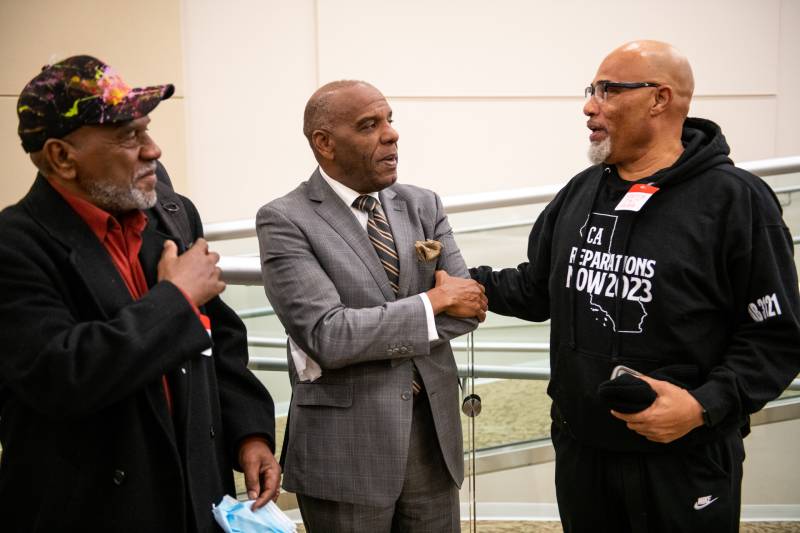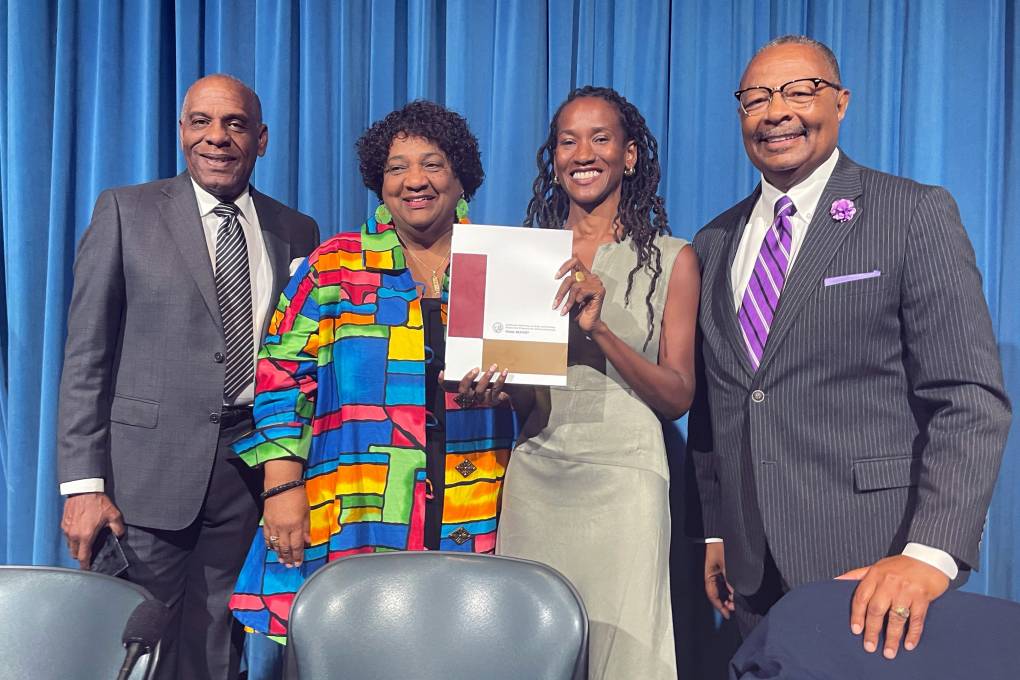The movement to reclaim land taken by racist government action has found some success in California, most notably with the 2021 return of Bruce’s Beach in Southern California.
Since then, former residents of Russell City in Alameda County, Los Angeles and Palm Springs have launched campaigns for the return of land — or fair compensation for properties they believe were improperly razed.
SB 1050 would have created a standardized state process to review claims. However, the bill was dependent on the passage of SB 1403 and SB 1331, neither of which made it through the Legislature.
SB 1403 sought to establish the California American Freedmen Affairs Agency to implement the recommendations of the state task force. The agency would, among other duties, determine how an individual’s status as a descendant of an enslaved person would be confirmed.
SB 1403 was considered the centerpiece of this year’s reparations bills. Last-minute pressure from Newsom’s staff to make amendments divided Black lawmakers and stalled the bill. Instead of creating the agency, the amendments proposed earmarking $6 million for the California State University system to lead a study of reparations, according to Bradford, a member of the state’s reparations task force and author of SB 1403 and SB 1331, in addition to SB 1050.
Last month, Bradford told KQED SB 1403’s failure was a “great disappointment.”
“I’ve had bills vetoed, and you dust yourself off, and you move forward, but the nation was watching this one,” he said. “We had to strike when the iron was hot. We were at the finish line, the votes were there. And I just wish we would have had the opportunity to vote it up or down.”
On Sept. 21, Newsom vetoed a state bill that would have established a task force to study reparations for families forced out of Chavez Ravine in the 1950s to make room for Dodger Stadium.


